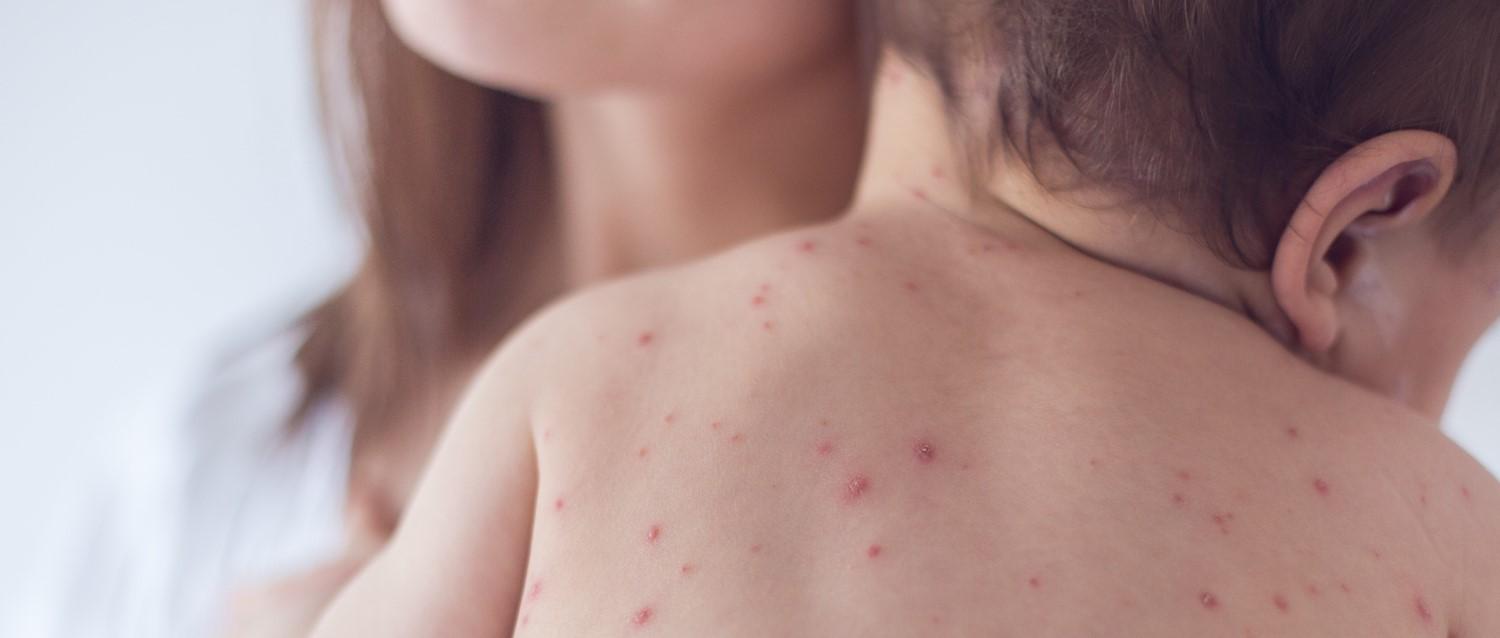
¿Debe vacunarse su hijo contra la varicela?
Peer reviewed by Dr Krishna Vakharia, MRCGPAuthored by Lydia SmithOriginally published 8 Jun 2023
- DescargarDescargar
- Compartir
Muchos de nosotros recordamos la varicela cuando éramos niños. Era casi imposible dejar de rascarse los puntos rojos que picaban, pero hacerlo podía provocar cicatrices. En un intento de calmar el picor, los padres nos empapaban en loción de calamina y baños de avena. Pero ahora, en lugar de contraer el virus para obtener inmunidad, hay otra vía que los padres pueden elegir: la vacuna contra la varicela.
En este artículo:
Chickenpox is an illness caused by the varicella zoster virus. The symptoms include an itchy, spotty rash that turns into blisters, as well as a high temperature, aches and pains, tiredness, a loss of appetite and generally feeling unwell.
Chickenpox is common and mostly affects children, but you can get it at any age. It usually gets better by itself after one to two weeks without needing to see a GP. In adults, the symptoms tend to be more severe and can cause serious complications such as pneumonia1.
Catching chickenpox in childhood used to be the only way to get immunity to prevent getting the virus in adulthood. In order to 'catch' the virus and gain immunity, some parents would throw chickenpox parties. Since it was developed in Japan in the 1970s, however, the vaccine has become increasingly popular2. In the UK, the chickenpox jab isn’t part of the childhood vaccination programme on the NHS. However, you can pay for it privately.
Seguir leyendo
What are the pros of getting the chickenpox vaccine?
Reduces chance of catching chickenpox and prevents serious illness
One of the key benefits of the vaccine is that it significantly reduces the likelihood of catching chickenpox, as the symptoms can be very unpleasant. The itchy spots can be very irritating and affect sleep and generally make a child feel very unwell. However, most children who catch the virus don’t become seriously unwell and get better after one or two weeks.
However, a very small number of children - even those who were previously healthy with no underlying medical conditions - can experience severe complications. These can include encephalitis - a swelling of the brain - pneumonia and other serious infections3.
The vaccine prevents chickenpox in 85% of immunised children, but provides 97% protection against severe disease4. Therefore, if an immunised child does catch the virus, they are far less likely to have serious complications.
Protects vulnerable people
The chickenpox vaccination is recommended for adults and children in regular or close contact with someone who has a weakened immune system or is at risk of serious illness if they catch chickenpox.
Vaccination also protects people at risk of catching chickenpox through close contact. The types of people who can have a chickenpox vaccination on the NHS include non-immune healthcare workers and close relatives and carers - who have not previously had chickenpox - of people who are unwell.
Helpful for working parents
Additionally, preventing a child from catching chickenpox can be an easier route for working and busy parents. A child with the virus will need to stay off nursery or school until their scabs have healed over, which can take up to a week. This can mean parents have to take time off work.
Trimming transmission
If a child catches chickenpox after having the vaccination - known as a breakthrough infection - it isn’t as contagious as the natural infection. Therefore, getting your child vaccinated can mean that other children may be less likely to get infected.
What are the cons of getting the chickenpox vaccine?
Not available on NHS
Unfortunately, the vaccine isn’t available on the NHS for the majority of children and adults. Jabs are given only to adults and children who are in close contact with someone who is either immuno-suppressed or would otherwise be at risk if they got chickenpox. So if you do want to get your child vaccinated, you’ll have to pay for the vaccine. It comes in two doses and costs around £150 for the whole course.
Who shouldn't have the chickenpox jab?
People who should not have the chickenpox vaccine include:
Anyone with a weakened immune system.
Anyone who has had a serious allergic reaction to a previous dose of the vaccine or to any of the ingredients in the vaccine.
Pregnant women - if you have the chickenpox vaccine, try to avoid becoming pregnant within one month of the last dose.
Anyone who is seriously unwell should delay having the vaccination until they recover.
Seguir leyendo
Para saber más
Papaloukas et al: Successes and challenges in varicella vaccine.
Cameron et al: Severe complications of chickenpox in hospitalised children in the UK and Ireland.
Historia del artículo
La información de esta página ha sido revisada por médicos cualificados.
8 Jun 2023 | Originally published
Autores:
Lydia SmithRevisado por expertos
Dr. Krishna Vakharia, MRCGP

Pregunte, comparta, conecte.
Explore debates, formule preguntas y comparta experiencias sobre cientos de temas de salud.

¿Se encuentra mal?
Evalúe sus síntomas en línea de forma gratuita
